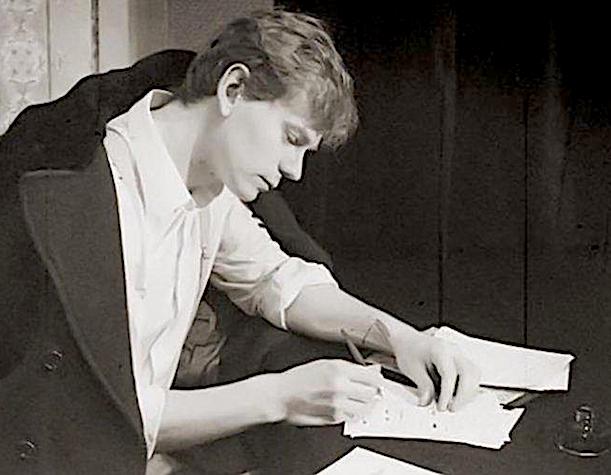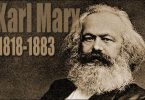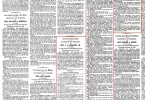(Jewish Telegraphic Agency) It’s become common knowledge today that the so-called “Russian” Revolution wasn’t Russian at all — it was orchestrated and financed by alien international Jews — and one of the first laws they enacted was to make “antisemtism” a jailable or even capital offense — as the native Russian Poet, Sergei Yesinen, found out the hard way:
Sergei Essenin [Yesinen], peasant-poet husband of [famed American dancer] Isadora Duncan is in Jail in Moscow with three other poets, and likely to stay there a long time, because he “discussed” Jews too freely while “only slightly drunk,” according to a copyright wireless dispatch to THE NEW YORK TIMES today.
It happened thus, wires the Times Correspondent, “Shortly before midnight on Tuesday there was a telephone call in the Kremlin apartment of the Bolshevist poet laureate Denyst Tlyedni [aka Demyan Bedny].
“Hallo, old top,” said a cheerio voice, “This is Essenin, and I’m here in Police Station 47 with three other fellows. We want you to tell them to let us out.”
“Well, it’s like this,” Essenin went on readily, “We were sitting in a beer saloon getting ready for the celebration, and the conversation turned on the Jews, Jews everywhere–even in literature, and so on. Then (((some chap))) at the next table butted in and there was a bitter argument, and the result was we got arrested.”
“So, not so good,” said Tlyedni.
“Not good at all,” came the unabashed reply, “when one blessed Jew can put four Russians in jail.”
Whereat Tlyendi rang off, and after a short talk with in Police Captain told the latter–perhaps in prudence than friendship–“I won’t back up the rascals; the law taken its course.”
“It appears that Essenin and his friends did not make anti-Semitic remarks, but criticized the position of Jews in the Soviet Government, mentioning well known names. They resisted arrest until a squad of police arrived.”
The last person Yesinin could expect any help from was the Bolshevik “Poet Laureate” Denyst Tlyedni [aka Demyan Bedny] — a political hack who owed his entire career to the judeo-Bolsheviks.
And so it wasn’t surprising that Bedny threw Yesinin under the bus — after which Yesinin was publicly smeared as an “antisemite” by prominent Soviet “journalist”, the Jew, Lev “Leo” Sosnovsky who was involved in setting up a snitch network among independent farmers (kulaks) that would be instrumental to the execution of the Holodomor.
Sosnovsky got a taste of his own medicine during the Stalinist purges and was executed in 1937.
After Ysinin’s arrest, he would eventually be cleared by the Writer’s Union burlaw court — perhaps the fact that he had been married to the famous American — Isadore Duncan — made any conviction and execution politically inconvenient at that point.
But considering the pressure from Sosnovsky’s public attacks against Ysinin and subsequent harassment by the NKVD — along with the arrest and execution of 14 of his fellow writers and poets that year — Ysinin fled Moscow.
Over the next year, Ysinin was arrested four times — and then in 1925 he married the grand daughter of Leo Tolstoy, but by the end of the year, he was found dead in his hotel room in Leningrad, allegedly of a “suicide” — after having writing a “farewell” note, in his own blood, to an unknown and un-named friend — not to his newlywed wife.
One of Ysinin’s biographers — Stanislav Kunyaev — believes that Ysinin was murdered by the OGPU — the Soviet secret police — and then staged as a suicide — as such an admired public figure, Yesinin would always remain a threat to the Jews in power.
One thing is certain — once Ysinin was overheard by a Jew at a cafe expressing “antisemitic conspiracy theories” about the disproportionate Jewish power in the Soviet Union, his days were literally numbered.
The Jewish Bolsheviks relentlessly purged “antisemites” — those who noticed the pattern — with extreme prejudice — making the Jews so intensely hated that they feared that if they ever lost control, they would be massacred wholesale by the Russian people.
In fact, to protect themselves, in 1929 the judeo-Bolsheviks ran a disinformation campaign claiming that there were no more Jews among the communist leadership of Russia.
The mass murderer Leon Trotsky felt it necessary to write a eulogy upon Yesinin’s death affirming the official narrative:
“We lost Yesinin, a fine poet, so genuine and so lovely, a freshness. He’s gone by his own will, saying farewell to an unknown friend in his own blood — perhaps [to] all. His last line was striking in its tenderness and gentleness. He left life crying out that he had been offended, without protest without slamming doors, but closing them with a hand which blood was flowing. Because of this gesture, an unforgettable aura of farewell-ness illuminates this image of Yesinin as a man and as a poet.”
Given the fact that it was Leon Trotsky himself who was instrumental in passing the law that made “antisemitism” as capital offense, we should probably take his remarks about Yesinin’s “suicide” as a textbook example of Jewish cynicism — he got what he deserved.
And if the Jews ever gain enough unopposed power over the West as they achieved in Russia, anyone of us who dares to even notice that Jewish power will meet the same fate as Sergei Yesinin.






